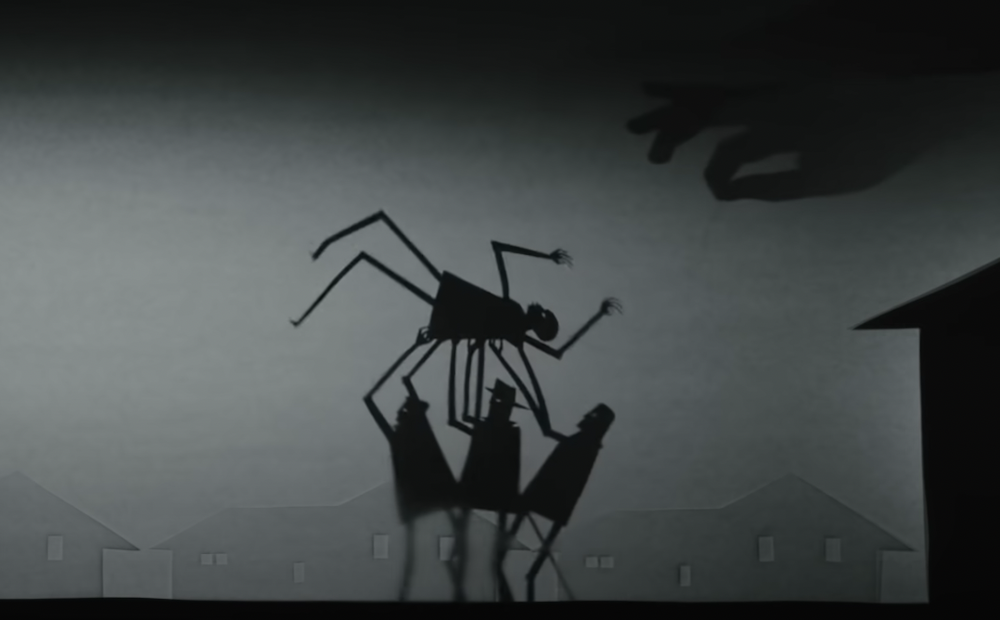Books & Culture
Listen Up Philip and the Asshole Author

In Listen Up Philip (Directed by Alex Ross Perry), Jason Schwartzman stars as Philip Lewis Friedman, an amazing jerk who is about to publish his second novel. He’s jealous and self absorbed to the point of delusion: he yells at his friends, takes loved-ones for granted, and is even pleased when a rival commits suicide. Unlike Michael Douglas in Wonder Boys or Nicholas Cage in Adaptation, who manage to engender some affection in their audiences, Philip inspires only contempt.
First, I’ll say that I enjoyed this film. It’s funny, often poignant, and very well acted. The occasional appearance of an omniscient voice-over (“Philip returned to his pitiful life at the college”) pokes fun at novelistic prose, and the book covers of fictive novels are one of the film’s greatest pleasures. Though Philip Lewis Friedman shares a first name with Philip Roth, it’s his mentor, Ike Zimmerman, who bears an aesthetic, if not terribly substantive, resemblance to the author. To say that Zimmerman is “based on” Roth is an over statement — the name Zimmerman evokes Roth’s fictional alter-ego, Nathan Zuckerman, and the covers of their novels use the same font. But these references are not strictly to Roth: the jacket of one Zimmerman novel, the title of which adorns his vanity license plate, is a direct imitation of Martin Amis’s Money. Other than teaching at a prestigious University, Zimmerman’s biography does not line-up with Roth’s; the allusions instead build a familiar type of writer — masculine and prolific — and give the audience the (false) sense that they encountered Zimmerman, or at least his pages, before.
Listen Up Philip is quite enjoyable, but it is also blunt and redundant. Jason Schwartzman’s character is a pastiche of former roles — Max Fisher, grown up, wearing Jonathan Ames’ tweed blazer from Bored To Death — only meaner. (In one of the funniest moments, Philip’s girlfriend, brilliantly portrayed by Elizabeth Moss, chides Philip for wearing that tweed blazer in 80-degree heat. “It looks like you don’t own a more seasonally appropriate jacket,” she says.)
The basic story is this: Zimmerman has read Philip’s novels and decides on their merit to mentor him. Philip accepts Zimmerman’s offer to stay at his country house (“The city has a creative energy, but not a productive one,” Zimmerman says), leaving behind his estranged girlfriend, Ashley. At the country house he encounters Zimmerman’s daughter (Krysten Ritter), who is damaged by the routine neglect of her famous father. Over the course of the film, Philip visits one ex-girlfriend, makes a new girlfriend, and half-heartedly tries to win back his old girlfriend. All the while palling around with Zimmerman, who regularly insults him under the guise of “advice.” Philip either doesn’t notice the insults or is so enamored with Zimmerman he is flattered even by condescension. Eventually the special combination of female rejection and male encouragement calcify Philip into the asshole he was always meant to be.
While there are surely selfish women writers (and female writers who aspire to be selfish, as the narrator in Jenny Offill’s Dept. of Speculation hopes to become an “art monster”), as well as female assholes, the subject of the asshole author is intertwined — through the content of its case studies — with the subject misogyny. Take Norman Mailer, the most obvious example, who routinely made derisive remarks about women and, if anyone needed further convincing of his brutishness, stabbed his second wife. There’s the famous anecdote of Faulkner screaming at his tearful child (“No one remembers Shakespeare’s daughter!”), or, for a more nuanced case, the memoirs of Susan Cheever, Janna Malamud Smith, or Alexandra Styron. (Incidentally, Ike’s daughter Melanie Zimmerman has also written a memoir, A Daughter’s Point of View.)
But Listen Up Philip has little more to say about misogyny than to point out obvious examples, as when Zimmerman tells Philip, “Don’t make yourself too miserable. That’s what the women are for, in my experience.” Whether the women make the men miserable or the men make the women miserable is up for interpretation — it’s probably both — but lines like this remind me that Listen Up Philip isn’t The Love Affairs of Nathaniel P. It’s a take-down of an easy target, not Adele Waldman’s subtly observed investigation of a misogynist mind. It’s worth pointing out that, though there are interesting female characters — Ashley has rising career as a photographer and is strong and clear-minded even when emotionally vulnerable — unless you count a two-line exchange she has with a model about a kitten, this film does not pass the Bechdel test. The women speak exclusively about either Philip or Zimmerman, even when they are speaking to Philip or Zimmerman. (Philip and Zimmerman are, respectively, Philip and Zimmerman’s favorite subjects.)
The concept of the Asshole Author is nothing new, and to what degree selfishness is necessary to artistic and intellectual achievement remains an open question. Many of the great American writers of the 19th century were notoriously selfish, and yet, even when reading the memoirs of their mistreated children, its impossible to overlook the contribution their work has made to the world of letters. At best their flaws of character are absolved by their works of art; at worst, their flaws are softened by their achievements.
Ike Zimmerman and Philip Lewis Friedman, however, have no such chance for absolution. Their novels do not exist on Kindles or on the shelves of independent bookstores, and so the assholes cannot be redeemed through their art. If I were compelled to come to the defense of these men, I would say there is an essential unfairness in that. But I’m not compelled. It’s fun to join in making fun of people who deserve it. Still, a fictional film about a writer, by definition, presents an incomplete picture. As I sat in the theater, I couldn’t help but wonder, what’s between these clever jackets? What would those pages actually contain? How can a man who cannot read people, write them? Is it possible for a person to understand themselves, but not others? Do shitty men write shitty novels? But without books to turn to for answers, the questions led only to dead-ends.









